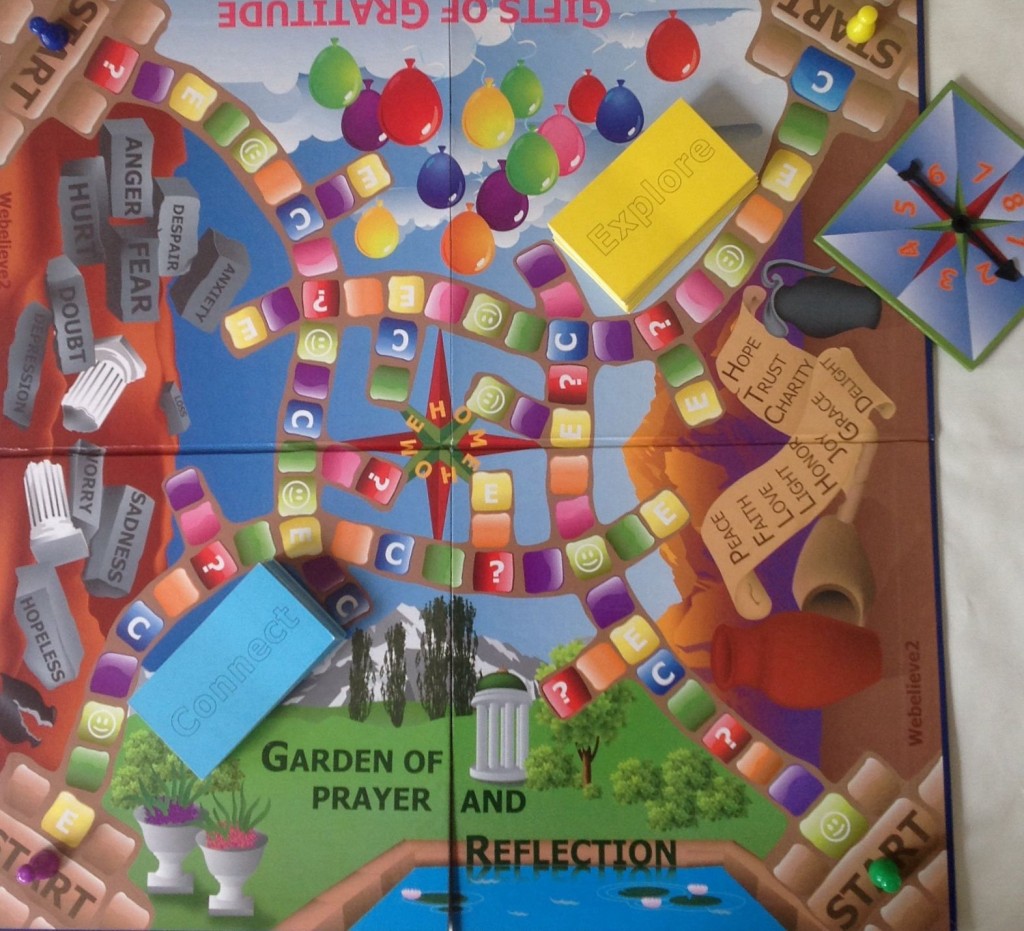 Interreligious dialogue and notions of tolerance, while suggesting inclusivity, often employ exclusions that identify insiders and outsiders, although these insiders and outsiders are different than the boundaries commonly employed in communities. An interesting example of this paradox is Webelieve2, a board game advertised as encouraging discussion among people with different religious commitments. The game is designed to create an opportunity to “learn about others” and “to connect with others.” While targeted marketing to Religious Studies professorsassumes certain interests inform the study of religion (several of my colleagues and I recently received emails advertising this game), the game also reflects particular assumptions about religion that create a variety of exclusions that seem to counter the instructions’ interest in creating an environment where “people feel ‘safe’ when sharing.”
Interreligious dialogue and notions of tolerance, while suggesting inclusivity, often employ exclusions that identify insiders and outsiders, although these insiders and outsiders are different than the boundaries commonly employed in communities. An interesting example of this paradox is Webelieve2, a board game advertised as encouraging discussion among people with different religious commitments. The game is designed to create an opportunity to “learn about others” and “to connect with others.” While targeted marketing to Religious Studies professorsassumes certain interests inform the study of religion (several of my colleagues and I recently received emails advertising this game), the game also reflects particular assumptions about religion that create a variety of exclusions that seem to counter the instructions’ interest in creating an environment where “people feel ‘safe’ when sharing.”
We Can’t All Be Exceptional
 National Public Radio — yes, I’ve been listening to it while driving to work in the morning and yes, I do contribute — has started a year long series on what they’re simply calling sacred music — listen to the first installment here. It’s on an actor in Hollywood — Ben Youcef (pictured in the middle, above) — originally from Algeria, who is also a muezzin (one who calls other Muslims to prayer). Continue reading “We Can’t All Be Exceptional”
National Public Radio — yes, I’ve been listening to it while driving to work in the morning and yes, I do contribute — has started a year long series on what they’re simply calling sacred music — listen to the first installment here. It’s on an actor in Hollywood — Ben Youcef (pictured in the middle, above) — originally from Algeria, who is also a muezzin (one who calls other Muslims to prayer). Continue reading “We Can’t All Be Exceptional”
Making Religion Central
A book in the local library, Chris Stedman’s 2012 memoir Faitheist: How an Atheist Found Common Ground with the Religious (Boston: Beacon Press), attracted my interest recently. In this book, Stedman, who self-identifies as an atheist, promotes pluralism and interfaith dialogue among the religious and non-religious. He strives to encourage people of different commitments to respect and listen to each other, as well as challenge each other, to counter the belligerent approach to religious people of those dubbed the New Atheists. He asserts that reconciliation can legitimize the status of the non-religious within society in a way that belligerence towards the religious never can. Continue reading “Making Religion Central”
